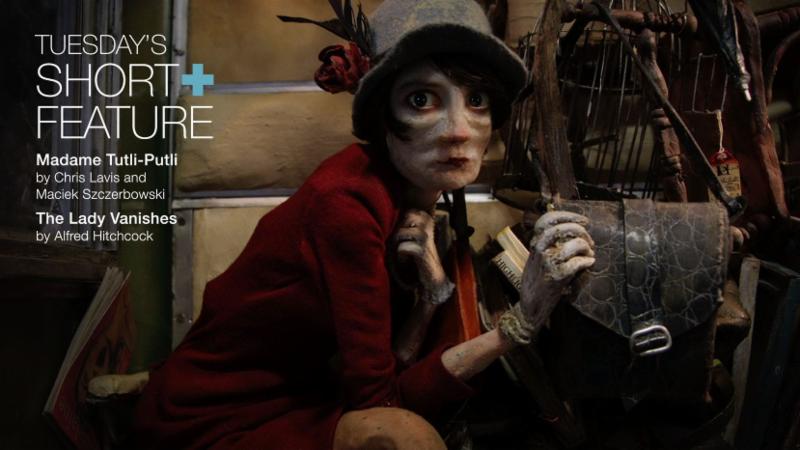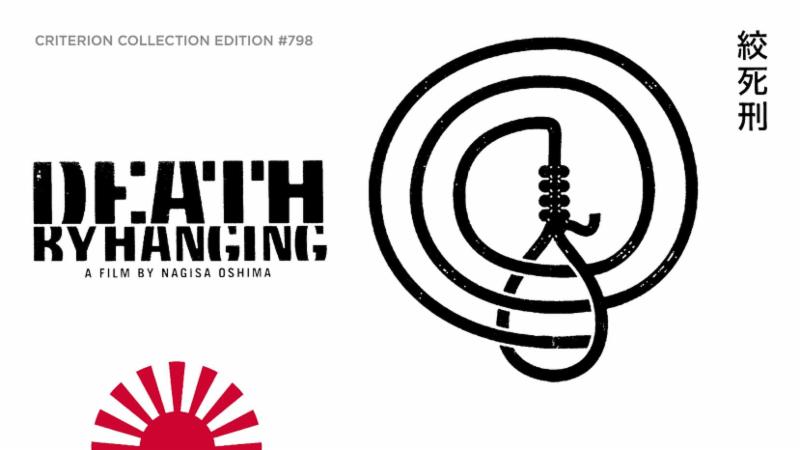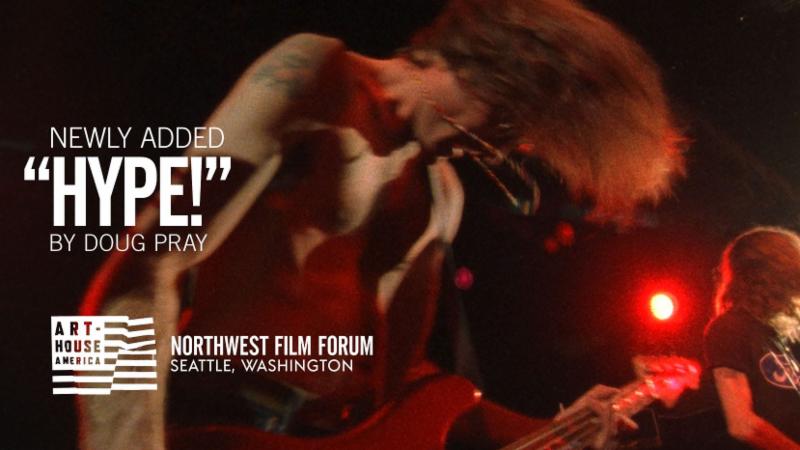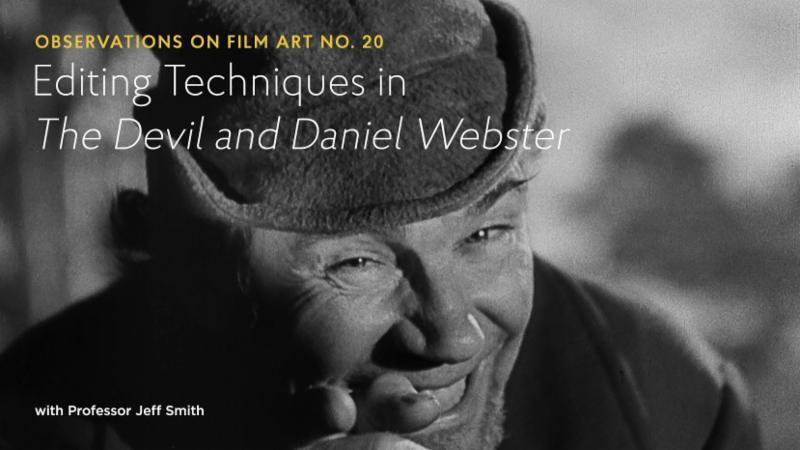JUNE PROGRAMMING ON THE CRITERION CHANNEL ON FILMSTRUCK!
Includes Frank Capra’s It Happened One Night,
the Complete Monterey Pop Festival, and Aki Kaurismäki’s The Other Side of Hope!
Friday, June 1
It Happened One Night*: Edition #736
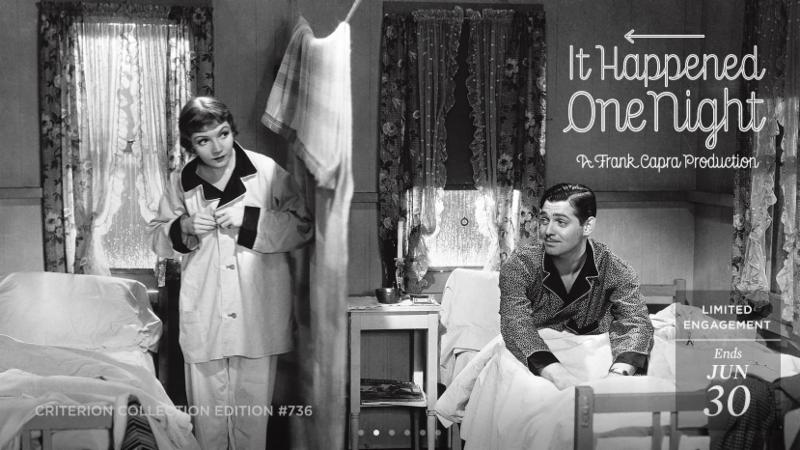
Opposites attract with magnetic force in this romantic road-trip delight from Frank Capra, about a spoiled runaway socialite (Claudette Colbert) and a roguish man-of-the-people reporter (Clark Gable) who is determined to get the scoop on her scandalous disappearance. The first film to accomplish the very rare feat of sweeping all five major Oscar categories (best picture, best actor, best actress, best director, and best screenplay), It Happened One Night is among the most gracefully constructed and edited films of the early sound era, packed with clever situations and gags that have entered the Hollywood comedy pantheon and featuring two actors at the top of their game, sparking with a chemistry that has never been bettered. Supplemental features: a conversation between critics Molly Haskell and Phillip Lopate, an interview with Frank Capra Jr. from 1999, a feature-length documentary about the director’s life and career, and more.
*Premiering on the Channel this month.
Friday, June 1
Friday Night Double Feature: A Streetcar Named Desire and The Fugitive Kind

Marlon Brando sizzles in these two hothouse melodramas based on the work of Tennessee Williams. In 1950, Elia Kazan turned Williams’s most famous play, the Pulitzer Prize-winning A Streetcar Named Desire, into a big-screen sensation. Dripping with New Orleans atmosphere and featuring some of the most celebrated performances in Hollywood history, the film stars Vivien Leigh as tragic southern belle Blanche DuBois, who seeks shelter with her sister Stella (Kim Hunter) and brutishly sexy brother-in-law Stanley (Brando) after losing her home-and upends their lives in the process. A decade later, an all-star cast sank its teeth into Sidney Lumet’s The Fugitive Kind. In this intense reimagining of Williams’s Orpheus Descending-which would go on to be a major inspiration for David Lynch’s Wild at Heart-a snakeskin-jacketed Brando plays a drifter who tries to go straight but becomes romantically entangled with a sexually frustrated married woman (Anna Magnani) and a wild child (Joanne Woodward).
Monday, June 4
Philip Kaufman Presents The Asphalt Jungle by John Huston
Philip Kaufman (The Right Stuff, The Unbearable Lightness of Being), one of the most accomplished and eclectic of all American directors, recently sat down with critic and programmer Michael Sragow to explore his formative experiences as a film lover. Among the topics they got into was his love for John Huston’s meticulously calibrated 1950 crime drama The Asphalt Jungle. As an addition to Kaufman’s Adventures in Moviegoing episode, we’re presenting the film alongside a new introduction, in which Kaufman talks about his admiration for Huston’s complex depiction of the criminal underworld and his expert craftsmanship.
Tuesday, June 5
Tuesday’s Short + Feature: Old Man* and Easy Rider
1969 saw the release of Dennis Hopper’s Easy Rider and the media circus ignited by the Manson murders, two seismic cultural events that cast a shadow on the freewheeling good vibes of the hippie era. This program brings together two films that capture the spirit of that chaotic year. In the 2012 experimental documentary Old Man, Brooklyn-based artist Leah Shore combines eye-popping animation with never-before-heard phone calls that Charles Manson made from jail to the infamous cult leader and Canadian author Marlin Marynick. In his directorial debut, Hopper created one of the great American road movies, a counterculture sensation that mixed New Wave-inspired aesthetics, a bold rock soundtrack, and star-making performances by Peter Fonda and Jack Nicholson.
*Premiering on the Chanel this month
Wednesday, June 6
The Kennedy Films of Robert Drew & Associates: Edition #808
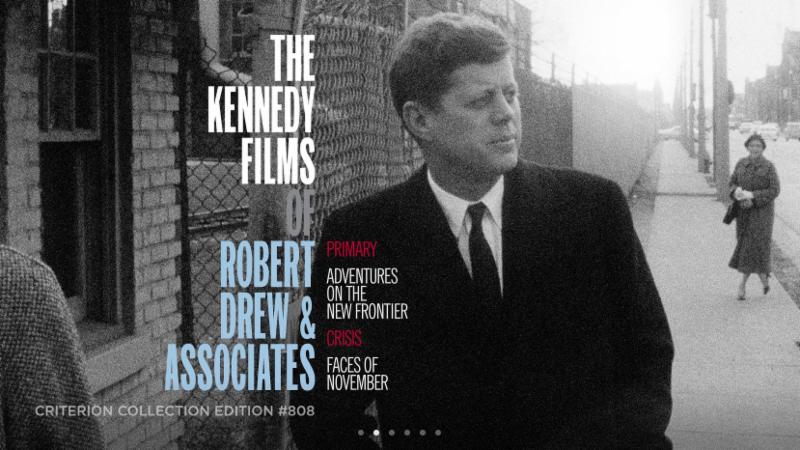 Featured on the Channel on the anniversary of Robert Kennedy’s death, this edition gathers four films that are early exemplars of the movement known as Direct Cinema and showcase some of the greatest footage we have of American politics at work. Seeking to invigorate the American documentary format, which he felt was rote and uninspired, Robert Drew brought the style and vibrancy he had fostered as a Life magazine correspondent to filmmaking in the late fifties. He did this by assembling an amazing team-including such eventual nonfiction luminaries as Richard Leacock, D. A. Pennebaker, and Albert Maysles-that would transform documentary cinema. In 1960, the group was granted direct access to John F. Kennedy, filming him on the campaign trail and eventually in the Oval Office. This resulted in three films of remarkable, behind-closed-doors intimacy – Primary, Adventures on the New Frontier, and Crisis – and, following the president’s assassination, the poetic short Faces of November. Supplemental features: an alternate cut of Primary; an audio commentary; a documentary featuring archival footage; outtakes from Crisis; an interview with Richard Reeves, author of President Kennedy: Profile of Power; a conversation about Crisis featuring former U.S. attorney general Eric Holder and Sharon Malone, Holder’s wife and the sister of Vivian Malone, one of the students featured in Crisis; and more.
Featured on the Channel on the anniversary of Robert Kennedy’s death, this edition gathers four films that are early exemplars of the movement known as Direct Cinema and showcase some of the greatest footage we have of American politics at work. Seeking to invigorate the American documentary format, which he felt was rote and uninspired, Robert Drew brought the style and vibrancy he had fostered as a Life magazine correspondent to filmmaking in the late fifties. He did this by assembling an amazing team-including such eventual nonfiction luminaries as Richard Leacock, D. A. Pennebaker, and Albert Maysles-that would transform documentary cinema. In 1960, the group was granted direct access to John F. Kennedy, filming him on the campaign trail and eventually in the Oval Office. This resulted in three films of remarkable, behind-closed-doors intimacy – Primary, Adventures on the New Frontier, and Crisis – and, following the president’s assassination, the poetic short Faces of November. Supplemental features: an alternate cut of Primary; an audio commentary; a documentary featuring archival footage; outtakes from Crisis; an interview with Richard Reeves, author of President Kennedy: Profile of Power; a conversation about Crisis featuring former U.S. attorney general Eric Holder and Sharon Malone, Holder’s wife and the sister of Vivian Malone, one of the students featured in Crisis; and more.
Thursday, June 7
Adventures in Moviegoing with Marlon James
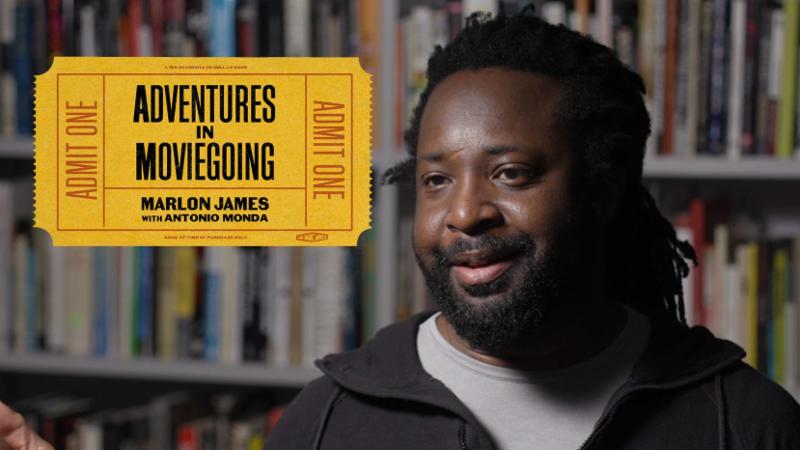
The movies have always been a source of inspiration and escape for this month’s guest curator, Man Booker Prize-winning novelist Marlon James (A Brief History of Seven Killings). Growing up in Jamaica in the seventies, he got his first taste of international cinema by watching the country’s one TV station, which played art-house staples like Fanny and Alexander, The Seventh Seal, and 8½. In this episode of Adventures in Moviegoing, James talks with Antonio Monda, artistic director of the Rome Film Festival, about this experience and others that shaped his tastes, including his first time seeing a movie in a theater (Come Back, Charleston Blue) and his encounter with Happy Together, which he considers the “only effective depiction of a gay relationship” on-screen. Alongside the interview, James has also handpicked a selection of all-time favorites, including Alfonso Cuarón’s Y tu mamá también, Dusan Makavejev’s Sweet Movie, and Errol Morris’s The Thin Blue Line.
Friday, June 8
Friday Night Double Feature: Million Dollar Mermaid and The Lure
The myth of the mermaid serves as a jumping-off point for these two showbiz musicals replete with siren songs. A biopic of the Australian swimmer turned early-cinema star Annette Kellerman, the Busby Berkeley-choreographed Million Dollar Mermaid follows its heroine from Sydney and London to New York and Hollywood as she becomes embroiled in a love triangle with her promoter and her manager. Then, Agnieszka Smoczyńska’s genre-defying horror-musical mash-up features a pair of carnivorous mermaid sisters who venture onto land and become the star act at a Polish nightclub.
Tuesday, June 12
Tuesday’s Short + Feature: Madame Tutli-Putli* and The Lady Vanishes
Train cars set the scene for nightmares and mysteries in this locomotive pairing. In Chris Lavis and Maciek Szczerbowski’s painstakingly animated short, a timid woman sets off on a bizarre train journey that descends into terror. Five years in the making, Madame Tutli-Putli has an eerie tone that owes much to its innovative compositing process, which allowed the filmmakers to merge live-action footage of actors’ eyes with stop-motion puppets. In Alfred Hitchcock’s quick-witted and devilish comic thriller, a plucky young woman on a trip across Europe meets a kindly spinster, who then seems to vanish into thin air. The master of suspense brings a light touch to this scenario, ingeniously orchestrating a breathless adventure within the confines of a train.
*Premiering on the Channel this month
Wednesday, June 13
Death by Hanging: Edition #798
Genius provocateur Nagisa Oshima, an influential figure in the Japanese New Wave of the 1960s, made one of his most startling political statements with the compelling pitch-black satire Death by Hanging. In this macabre farce, a Korean man is sentenced to death in Japan but survives his execution, sending the authorities into a panic about what to do next. At once disturbing and oddly amusing, Oshima’s constantly surprising film is a subversive and surreal indictment of both capital punishment and the treatment of Korean immigrants in his country. Supplemental features: an interview with critic Tony Rayns, Oshima’s 1965 short Diary of Yunbogi, and more.
Thursday, June 14
The Complete Monterey Pop Festival: Edition #167
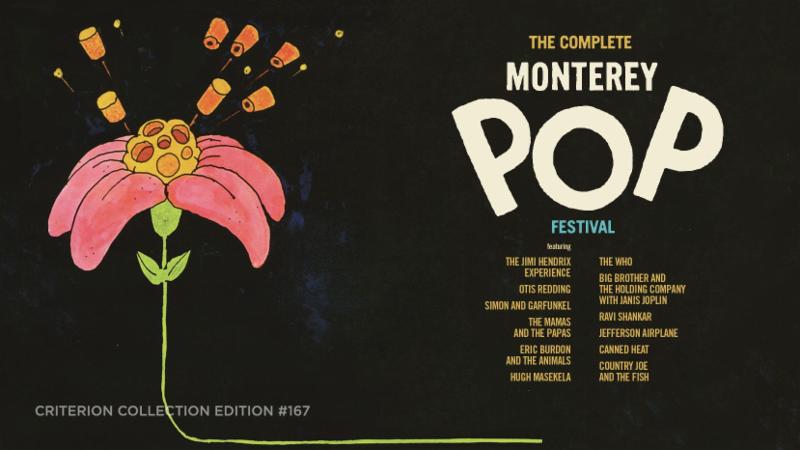
On a beautiful June weekend in 1967, at the beginning of the Summer of Love, the Monterey International Pop Festival roared forward, capturing a decade’s spirit and ushering in a new era of rock and roll. Monterey featured career-making performances by Jimi Hendrix, Janis Joplin, and Otis Redding, but they were just a few of the performers in a wildly diverse lineup that also included Simon and Garfunkel, the Mamas and the Papas, the Who, the Byrds, Hugh Masekela, and the extraordinary Ravi Shankar. With his characteristic vérité style-and a camera crew that included the likes of Albert Maysles and Richard Leacock-D. A. Pennebaker captured it all, immortalizing moments that have become legend: Pete Townshend smashing his guitar, Jimi Hendrix burning his, Mama Cass watching Janis Joplin’s performance in awe. This Criterion edition is the most comprehensive document of the Monterey Pop Festival ever produced, featuring the films Monterey Pop, Jimi Plays Monterey, and Shake! Otis at Monterey, along with every available complete performance filmed by Pennebaker and his crew and additional rare outtakes. Supplemental features: two hours of performances not included in Monterey Pop; audio commentaries, new interviews with festival producer Lou Adler and Pennebaker; Chiefs, a short film by Richard Leacock; and more.
Friday, June 15
Friday Night Double Feature: Whisky Galore! and Brigadoon
Remote Scottish locales are disrupted and transformed by the outside world in a boozy Ealing comedy and an underappreciated Vincente Minnelli masterpiece. Alexander Mackendrick (Sweet Smell of Success) made his directing debut with Whisky Galore!, a gleefully antiauthoritarian comedy in which a sinking ship loaded with 50,000 barrels of whisky breaks the wartime alcohol shortage on a Scottish island. Adapted from the Broadway hit by Frederick Loewe and Alan Jay Lerner, Minnelli’s stunning CinemaScope musical Brigadoon stars Gene Kelly as an American on a hunting trip in Scotland who discovers a magical village lost in time and falls in love with one of its inhabitants.
Tuesday, June 19
Tuesday’s Short + Feature: Edmond Was a Donkey* and Au Hasard Balthazar
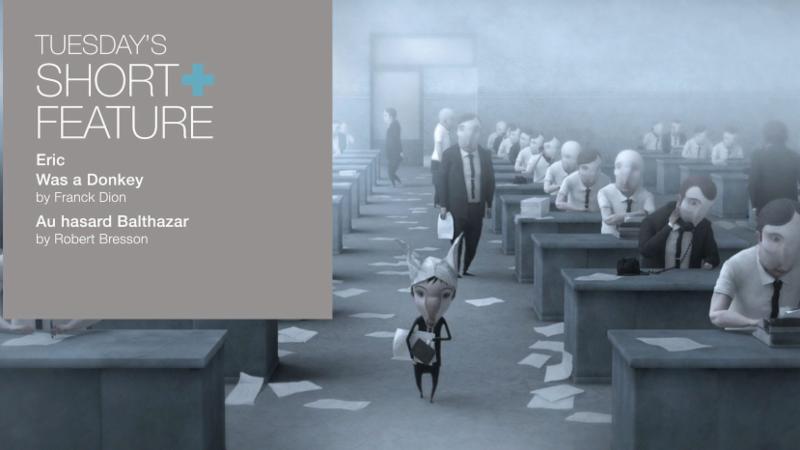
The burdens of donkeyhood hold a mirror up to the human condition in these parables of everyday cruelty. Franck Dion’s animated short concerns Edmond, a diminutive office drone mocked and bullied by his coworkers, who jeeringly crown him with a paper donkey hat. Instead of wounding him, though, this prank triggers an awakening of Edmond’s animal identity. Then, Robert Bresson’s hallowed classic follows the donkey Balthazar as he is passed from owner to owner and suffers for the sins of mankind, his life paralleling that of his first keeper, Marie (Anne Wiazemsky).
*Premiering on the Channel this month
Wednesday, June 20
Mildred Pierce: Edition #860
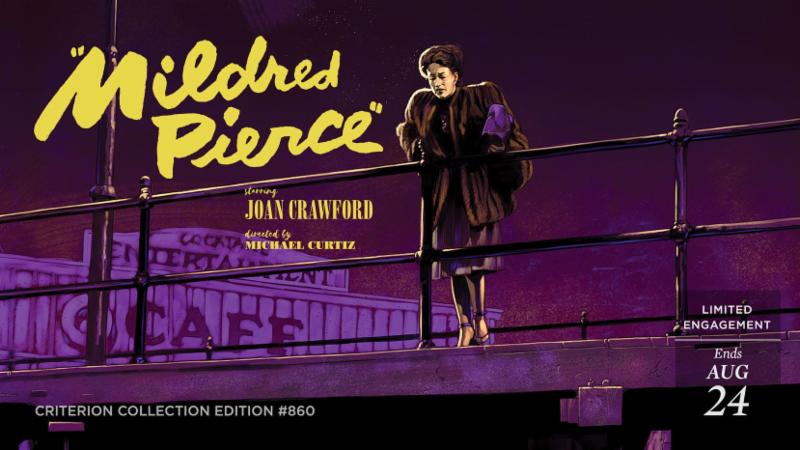
Melodrama casts noirish shadows in this portrait of maternal sacrifice from Hollywood master Michael Curtiz. Its iconic performance by Joan Crawford as Mildred, a single mother hell-bent on freeing her children from the stigma of economic hardship, solidified Crawford’s career comeback and gave the actor her only Oscar. But as Mildred pulls herself up by the bootstraps, first as an unflappable waitress and eventually as the well-heeled owner of a successful restaurant chain, the ingratitude of her materialistic firstborn (a diabolical Ann Blyth) becomes a venomous serpent’s tooth, setting in motion an endless cycle of desperate overtures and heartless recriminations. Recasting James M. Cain’s rich psychological novel as a murder mystery, this bitter cocktail of blind parental love and all-American ambition is both unremittingly hard-boiled and sumptuously emotional. Supplemental features: a conversation with critics Molly Haskell and Robert Polito, excerpt from a 1970 episode of The David Frost Show featuring actor Joan Crawford, a feature-length documentary about Crawford, and more.
Friday, June 22
Friday Night Double Feature: From Here to Eternity and Some Came Running
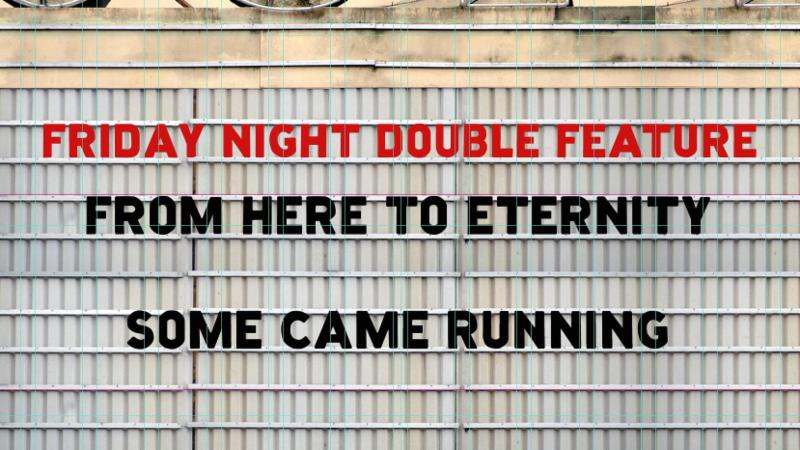
The work of American novelist James Jones provides the basis for these two star-studded Hollywood melodramas. Fred Zinnemann’s Oscar-winning classic From Here to Eternity (1953), an adaptation of Jones’s National Book Award-winning first novel, is a chronicle of military life on a Hawaiian base leading up to the attack on Pearl Harbor, with a flawless cast featuring Burt Lancaster, Montgomery Clift, Frank Sinatra, Deborah Kerr, and Donna Reed. Sinatra, who won an Oscar for his role, also stars in Vincente Minnelli’s big-screen version of Jones’s sprawling second novel, Some Came Running (1958), in which an alcoholic novelist returns home to small-town Indiana after the war and finds himself at a crossroads.
Friday, June 22
Art-House America: Northwest Film Forum, Seattle, Washington
Hype!, Doug Pray, 1996
The Channel-exclusive series Art-House America recently visited Seattle’s Northwest Film Forum, a grassroots theater that has become a vibrant hub for a diverse mix of visual media and live events. Alongside our documentary profile about the venue, we’re presenting a selection of films near and dear to the theater’s programmers. The latest addition to the series is Doug Pray’s landmark grunge-rock documentary Hype! (1996), a brisk and captivating film that charts the early-nineties rise of such legendary Seattle bands as Nirvana, Pearl Jam, and Soundgarden. In 2016, the NWFF played host to a memorable twentieth-anniversary screening that was attended by many of the musicians featured in the film.
Monday, June 25
Observations on Film Art No. 20: Editing Techniques in The Devil and Daniel Webster
The conventions of continuity editing became standardized over a hundred years ago, and they remain the dominant style of editing in popular cinema around the world. In the latest episode of Observations on Film Art, a Channel-exclusive series that gives viewers a ten-minute dose of film school every month, scholar Jeff Smith examines the classical cutting of William Dieterle’s Faustian satire The Devil and Daniel Webster (1941). Smith finds that, in the film, Dieterle and editor Robert Wise make textbook use of such common editing techniques as crosscuts, dissolves, and eyeline matches, while at the same time demonstrating the expressive possibilities of the continuity system’s so-called rules.
Tuesday, June 26
Tuesday’s Short + Feature: Begone Dull Care* and Elevator to the Gallows
The sounds of legendary jazz musicians permeate these two gems. In their experimental animated short Begone Dull Care (1949), filmmakers Norman McLaren and Evelyn Lambert create a kaleidoscopic visual representation of the music of jazz pianist Oscar Peterson, whose vibrant rhythms are mirrored by an array of abstract drawn-on-film images. Louis Malle’s impeccably crafted debut feature, the Jeanne Moreau-starring crime thriller Elevator to the Gallows, boasts an improvised score by Miles Davis that heightens the seductively forlorn atmosphere of the film’s Parisian nightscape.
*Premiering on the Chanel this month
Wednesday, June 27
The Other Side of Hope*: Edition #922
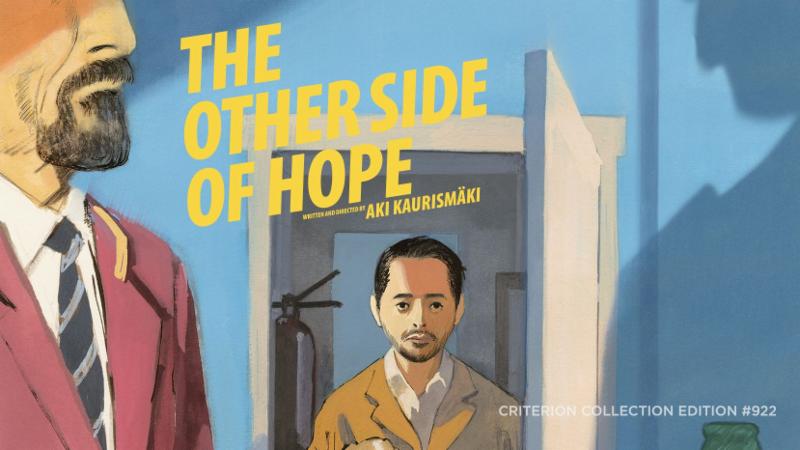
This wry, melancholic comedy from Aki Kaurismäki, a response to the ongoing global refugee crisis, follows two people searching for a place to call home. Khaled (Sherwan Haji), a displaced Syrian, lands in Helsinki as a stowaway; meanwhile, middle-aged Finnish salesman Wikström (Sakari Kuosmanen) leaves his wife and his job and buys a conspicuously unprofitable restaurant. Khaled is denied asylum but decides not to return to Aleppo-and the paths of the two men cross fortuitously. As deadpan as the best of the director’s work, and with a deep well of empathy for its down-but-not-out characters (many of them played by members of Kaurismäki’s loyal stock company), The Other Side of Hope is a bittersweet celebration of pockets of human kindness in an unwelcoming world. Supplemental features: an interview with Sherwan Haji, footage from the press conference at the Berlin International Film Festival, and a new video essay by filmmaker Daniel Raim, and more.
*Premiering on the Channel this month
Friday, June 29
Friday Night Double Feature: The Killing of a Chinese Bookie and Reservoir Dogs
Colorful characters are the focus of these idiosyncratic (and independently made) spins on the gangster film. In John Cassavetes’s The Killing of a Chinese Bookie (1976), Ben Gazzara stars as a suave gentleman’s club owner deep in debt to the mob and feeling the squeeze. Quentin Tarantino loved Timothy Carey’s eccentric turn in that movie so much that he auditioned him for a role in his gritty and stripped-down first feature, Reservoir Dogs (1992), in which six criminals (among them Harvey Keitel, Tim Roth, and Steve Buscemi), all of them using color-coded pseudonyms, try to get to the bottom of who’s to blame after a botched diamond heist.
—
Complete list of films premiering on the Criterion Channel this month:
June 1
It Happened One Night, Frank Capra, 1934
June 5
Old Man, Leah Shore, 2012
June 12
Madame Tutli-Putli, Chris Lavis and Maciek Szczerbowski, 2007
June 19
Edmond was a Donkey, Franck Dion, 2012
June 26
Begone Dull Care, Norman McLaren, 1949
June 29
The Other Side of Hope, Aki Kaurismäki, 2017


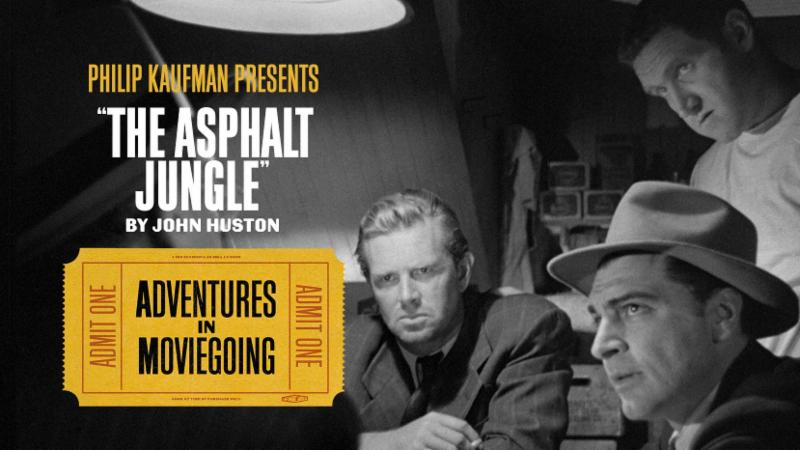
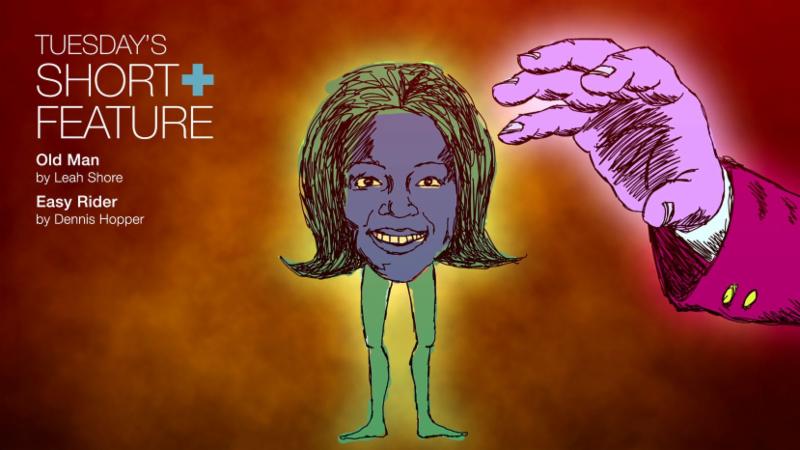
 Featured on the Channel on the anniversary of Robert Kennedy’s death, this edition gathers four films that are early exemplars of the movement known as Direct Cinema and showcase some of the greatest footage we have of American politics at work. Seeking to invigorate the American documentary format, which he felt was rote and uninspired, Robert Drew brought the style and vibrancy he had fostered as a Life magazine correspondent to filmmaking in the late fifties. He did this by assembling an amazing team-including such eventual nonfiction luminaries as Richard Leacock, D. A. Pennebaker, and Albert Maysles-that would transform documentary cinema. In 1960, the group was granted direct access to John F. Kennedy, filming him on the campaign trail and eventually in the Oval Office. This resulted in three films of remarkable, behind-closed-doors intimacy – Primary, Adventures on the New Frontier, and Crisis – and, following the president’s assassination, the poetic short Faces of November. Supplemental features: an alternate cut of Primary; an audio commentary; a documentary featuring archival footage; outtakes from Crisis; an interview with Richard Reeves, author of President Kennedy: Profile of Power; a conversation about Crisis featuring former U.S. attorney general Eric Holder and Sharon Malone, Holder’s wife and the sister of Vivian Malone, one of the students featured in Crisis; and more.
Featured on the Channel on the anniversary of Robert Kennedy’s death, this edition gathers four films that are early exemplars of the movement known as Direct Cinema and showcase some of the greatest footage we have of American politics at work. Seeking to invigorate the American documentary format, which he felt was rote and uninspired, Robert Drew brought the style and vibrancy he had fostered as a Life magazine correspondent to filmmaking in the late fifties. He did this by assembling an amazing team-including such eventual nonfiction luminaries as Richard Leacock, D. A. Pennebaker, and Albert Maysles-that would transform documentary cinema. In 1960, the group was granted direct access to John F. Kennedy, filming him on the campaign trail and eventually in the Oval Office. This resulted in three films of remarkable, behind-closed-doors intimacy – Primary, Adventures on the New Frontier, and Crisis – and, following the president’s assassination, the poetic short Faces of November. Supplemental features: an alternate cut of Primary; an audio commentary; a documentary featuring archival footage; outtakes from Crisis; an interview with Richard Reeves, author of President Kennedy: Profile of Power; a conversation about Crisis featuring former U.S. attorney general Eric Holder and Sharon Malone, Holder’s wife and the sister of Vivian Malone, one of the students featured in Crisis; and more.

